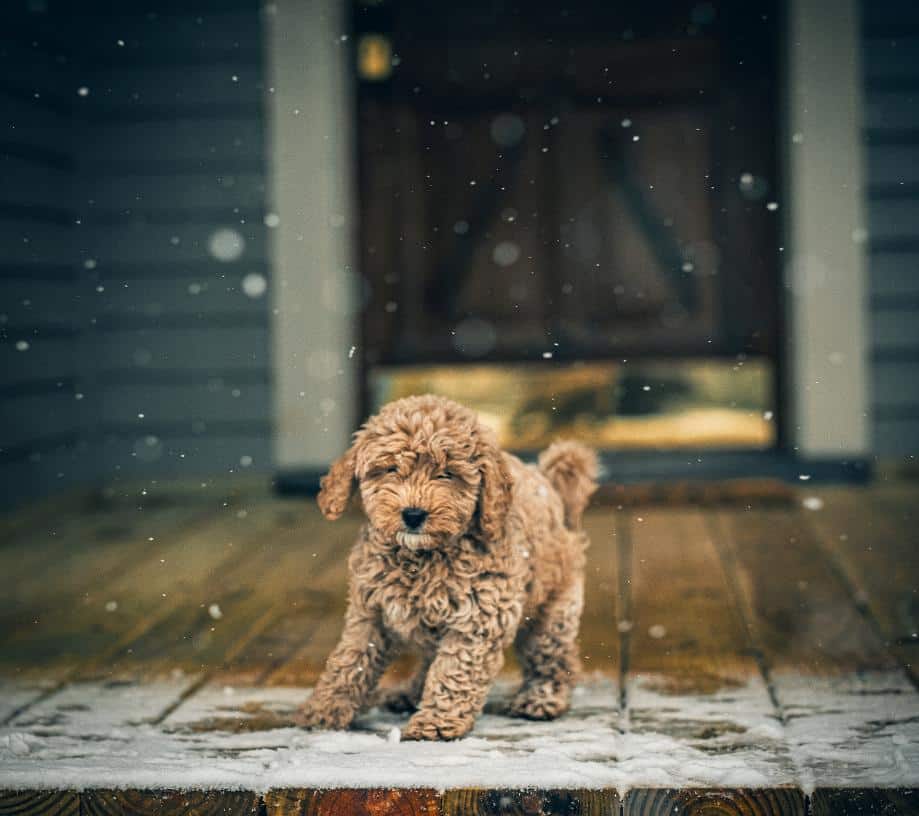Most Common Winter Hazards For Dogs and Cats ![Paw Print Icon]()

While many pet owners are aware of the potential dangers of hot weather for their pets, they are sometimes not as vigilant about potential winter hazards. The dangerous reality is that there are serious winter hazards for dogs and cats in Colorado. Together, we can protect pets from the elements and guard against seasonal health risks.
How the Cold Affects Pets
Frostbite occurs when the skin and other tissues are exposed to temperatures below 32 degrees fahrenheit. The blood vessels closest to the outside layers of the skin constrict, diverting blood away from the extremities toward the core where it’s needed the most. The paws, nose, ears, and tail are highly susceptible to freezing and injury. What’s more, in freezing rain or snowy weather frostbite is more likely.
Signs of frostbite include pain or sensitivity to touch, skin discoloration, swelling, and blisters. They may not appear for several days after exposure. Secondary skin infections may also develop.
What Is Hypothermia?
When a pet’s internal temperature falls, they are at risk of hypothermia. Clinical signs include paleness, shallow breathing, shivering, lethargy, and loss of coordination. If they are whining, uncomfortable, and cold to the touch, please reach out to us for urgent care.
It is important to shop around for protective clothing and gear for your pet. Booties, insulated vests, and rain jackets can keep them warm, dry, and comfortable. If it’s too cold for you to be out in the weather, it is definitely too cold for your pet.
Other Risks to Winter Safety
It is no secret that our Colorado lifestyles overlap with a great variety of wildlife. In addition to animal encounters with raccoons, opossums, and rodents, pets can cross paths with coyotes, bears, mountain lions, foxes, and deer. Always have your pets on leash and supervise them even when they are safely contained in the backyard.
Other risks to pet safety during the winter months include potential exposure to dangerous chemicals. Antifreeze, or ethylene glycol, is responsible for seasonal pet poisonings. With its slightly sweet flavor and smell, cats and dogs are easily drawn in by leaks and poor storage choices. To keep them safe from potential poisoning, keep antifreeze products in a secure cabinet, wipe up any leaks immediately, and train your pet to ignore or avoid the undersides of vehicles.
De-icer or ice melt products can cause irritation or pain to a pet’s paw pads, and can be toxic if ingested. Try to use pet-safe products at home, rinse and dry their feet after walks, and encourage your pet to wear their booties for walks around the neighborhood.
Keeping Pets Safe and Healthy
The colder months offer loads of opportunities for pets and their owners to make meaningful memories together: Snuggling by the heart, walking in the mountains, and enjoying all the season has to offer. And, when winter safety remains a priority, we can keep pets as healthy as possible.
If you have any questions about your pet’s health and safety this winter, please call us at (719) 839-0446. At Home Pet Doctor is always here for your pet.
